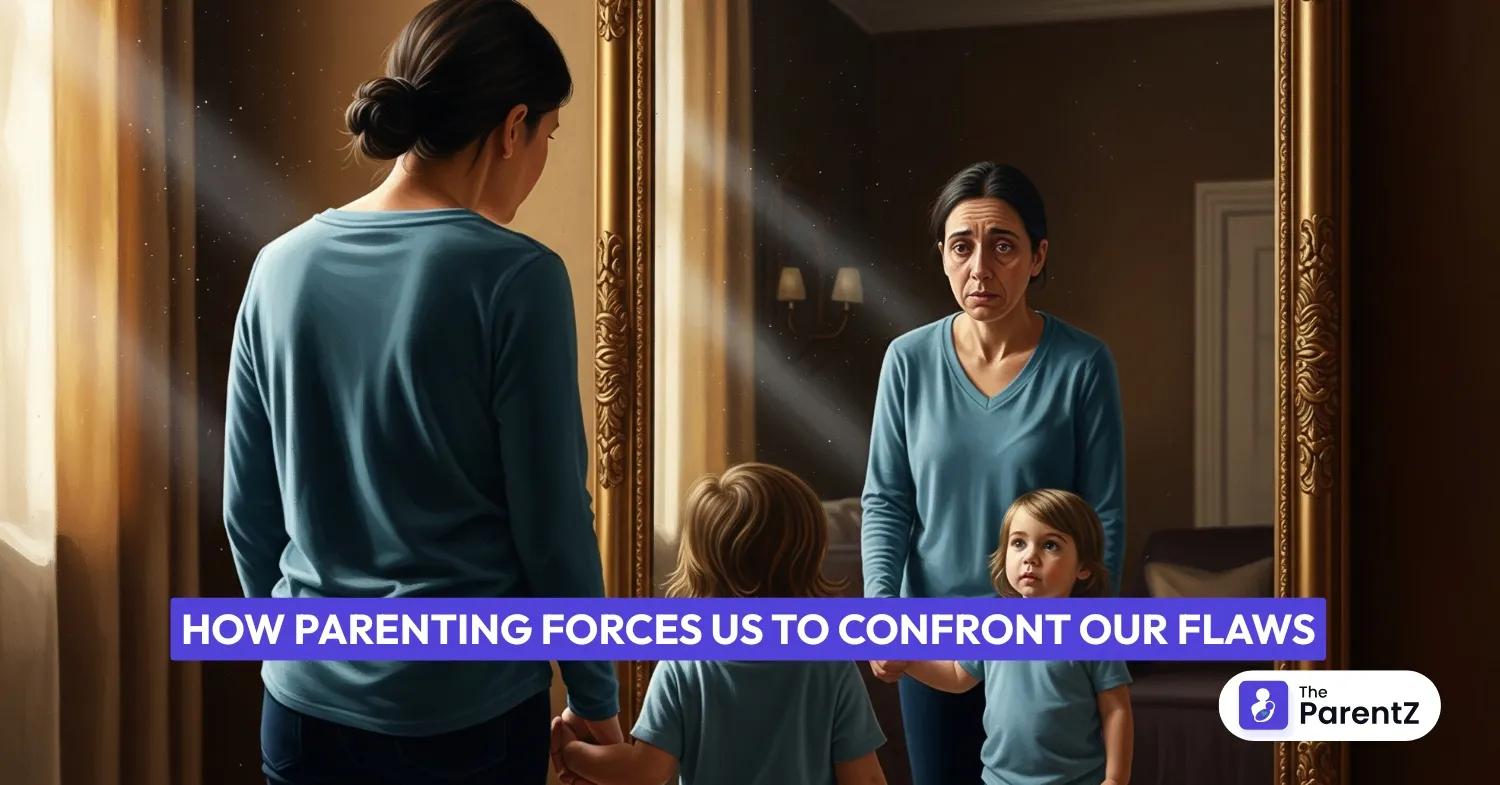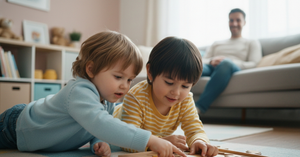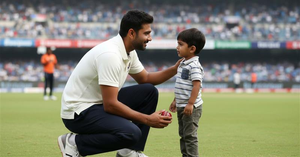Parenting has a funny way of holding up a mirror we didn’t ask for. It doesn’t just show us the sweet moments of love and pride, it also reflects the sides of us we’d rather keep tucked away. The impatience. The temper. The need for control. The insecurities we thought we’d outgrown. All of it comes out in ways we never saw coming, especially when we’re standing in front of the one thing we desperately want to get right, our children.
It’s easy to think of flaws as failures, but in truth, parenting doesn’t invent them. They were already there, buried beneath work, routine, distractions, or simply time. What parenting does is strip away the layers and expose them. Children have a way of pressing our buttons without meaning to, of testing limits without knowing how fragile those limits can be. And when that happens, the cracks in us show.
The question is, why does parenting force us to confront our flaws in such raw, undeniable ways?
The Unrelenting Mirror of Parenthood
Kids don’t tiptoe around your weak spots. They don’t avoid the topics or behaviors that set you off. In fact, they hit them directly, sometimes daily. A child’s stubbornness mirrors your own. A child’s meltdowns bring out your hidden impatience. Their constant need for your time highlights how little of it you’ve ever learned to give freely.
It’s not intentional; it’s life showing us ourselves. That’s why parenting feels so emotional. It’s not just about raising them, it’s about wrestling with us. Parenting brings to the surface:
- Impatience: Losing your cool when your toddler refuses shoes for the fifth time.
- Insecurity: Wondering if every choice you make is the wrong one.
- Control issues: Struggling to let kids take risks because you can’t handle the fear.
- Unhealed wounds: Reacting to your kids in the very ways you swore you never would, the way your parents reacted to you.
This mirror can feel brutal, but it’s also truth-telling. It doesn’t hide.
Parenting and the Fear of Failing
Every parent wants to give their child more than they had. More love, more patience, more understanding. And that’s exactly why flaws sting so deeply when they come out in parenting. We promised ourselves we wouldn’t yell, yet we raise our voices. We wanted to encourage freedom, yet we clamp down at the first sign of rebellion. We wanted to be calm and safe, yet anxiety spills into decisions.
The hardest part isn’t the argument you had with your child or the sharp word said in frustration; it’s the moment afterward, when guilt sinks in, and you wonder silently, “Am I ruining them?”
That fear, that desperate wish to avoid passing on your weaknesses, is part of the parenting weight that never fully leaves.
Why Parenting Forces Confrontation
You can hide flaws at work. You can avoid them in friendships. But in parenting, there’s no escape. You’re with your children when you’re tired, when you’re stressed, when you’re not operating at full strength. And kids don’t adjust their behavior to give you time to breathe.
Parenting confronts us with our flaws because:
- Children push limits endlessly. And your response reveals your threshold for patience.
- Children copy you. What you hoped to keep hidden shows up in their words and actions.
- Children demand presence. They don’t allow avoidance. You’re forced to face emotions in real time.
Parenthood is relentless. There’s no switch-off button. And that’s why flaws get exposed, not softly, but in ways that can feel painful and humiliating.
Accepting Yourself Without Drowning in Guilt
Here’s something you need to hear: having flaws doesn’t make you a bad parent. It makes you human. The fact that you notice them, the fact that you beat yourself up about them, that already means you care.
Instead of drowning in guilt, parenting asks us to learn. To pause and ask, Why did that trigger me? What wound is still open in me? The point isn’t to erase every flaw overnight, as that’s impossible. The point is to grow slowly, honestly. To let your children see not a perfect parent, but a real parent who keeps trying.
And yes, sometimes you’ll lose your temper. Sometimes your words will land wrong. Sometimes you’ll feel like you’ve failed. But children are far more resilient than we fear. They don’t need flawless parents; they need parents who repair, who apologize, who admit when they’re wrong, and who keep showing up despite imperfection.
The Gift of Flaws
Being forced to confront your flaws can actually be one of the greatest gifts of parenting. Because it means you’re also given the chance to heal. To break cycles. To learn patience. To practice forgiveness, not just for your child, but also for yourself.
Your kids don’t just learn from your strengths; they learn from watching you wrestle with your weaknesses. When they see you owning up to your mistakes, striving to grow, and showing humility, they learn resilience and kindness in ways lectures could never teach.
Conclusion
Parenting doesn’t create our flaws. It reveals them. It corners us into facing parts of ourselves we thought we had hidden away for good. And while that can feel crushing at times, it’s also a strange and unexpected gift.
Because in seeing the worst in yourself, you get the chance to become better, not just for your child, but for you. Parenting isn’t about being perfect. It’s about being real, flawed, human, and still showing up every day, letting love guide you even through the rawest parts of yourself.









Be the first one to comment on this story.